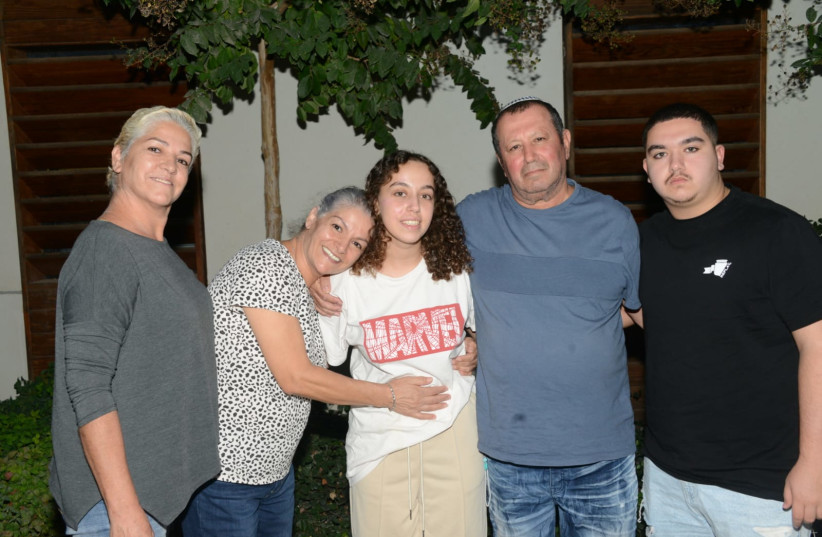On Friday, December 8, a dramatic raid took place in Gaza.
Israeli soldiers, acting on intelligence information, stormed a Hamas hideout in an attempt to free some of the 135 men, women, and children still being held hostage by the terrorist group.
Sadly, the rescue effort is said to have failed. While several terrorists were killed, two IDF soldiers were seriously wounded, and no hostages were freed.
This was the second such attempt that we know of during the current war.
The first, which occurred on October 29, was fortunately more successful when IDF soldier Ori Magidish, who was being held by Hamas in an apartment in the Shati refugee camp in northern Gaza, was rescued in a daring raid.

There have surely been other rescue operations that have taken place, some of which we may yet hear about, while others will remain shrouded in mystery.
Whatever the outcome of these efforts, they underline just how much value Israeli society places on life, to the point that it is willing to send young men in uniform on dangerous missions to rescue civilians taken captive by hostile forces.
At first glance, this might seem like a patently obvious thing to do. After all, isn’t that one of the reasons that we have a military?
I certainly think so, and so do most Israelis. But whether we like it or not, military strategists plotting a ground war must take into account various other factors as well, some of which might conflict with the timing or ability to carry out a raid.
These can range from the quality of actionable intelligence they might have regarding the possible location of hostages, to measuring the risks of such an action versus the likelihood of success, none of which is necessarily finite or quantifiable.
Therefore, however obvious it might seem, we should rightfully take pride in our society’s commitment to rescuing those held captive behind enemy lines.
It is perhaps inevitable that when many of us think of such undertakings, we imagine Hollywood-style assaults along the lines of Sylvester Stallone in Rambo: First Blood Part II, where our celluloid hero single-handedly storms a POW camp to retrieve captured American servicemen held by the Vietnamese.
But that, of course, is merely the stuff of fantasy.
Needless to say, Israel has had some outstanding successes in the past when taking action to free hostages.
Perhaps the most famous of them all was Operation Thunderbolt, the raid on Entebbe Airport on July 4, 1976. After Palestinian and German terrorists hijacked an Air France flight from Tel Aviv and diverted it to Uganda, they separated the Jewish and Israeli hostages and set a deadline for Israel to release some of their imprisoned comrades.
Israeli commandos surprised the terrorists, rescuing 102 of the 106 hostages and destroying nearly a quarter of Uganda’s military aircraft in the process. All seven hijackers were killed, as was Yoni Netanyahu, the only Israeli soldier to die in the raid.
The sensational rescue came just four years after another bold operation, when Palestinian terrorists from Black September hijacked Sabena Flight 571 from Brussels on May 8, 1972.
Upon landing in Israel, the terrorists demanded that Israel release Palestinian prisoners in exchange for the 90 hostages on board. They also separated the Jews and forced them to sit in the back of the plane and threatened to blow up the aircraft if their demands were not met.
A team of 16 elite Israeli troops, commanded by Ehud Barak and including Benjamin Netanyahu, dressed up as aircraft technicians and then stormed the plane, rescuing all but one of the passengers on board.
The early Jewish history of hostages and rescue missions
The truth is that since the dawn of the Jewish people, we have had to grapple with instances of hostage-taking.
Indeed, in the Bible, our founding father Abraham undertook just such a mission when his nephew, Lot, was taken captive by King Chedarlaomer and his allies (Genesis 14:12).
The incident itself is very instructive and contains within it some important lessons for us today.
The Torah says that Abraham “heard that his brother was taken captive” (Genesis 14:14). Rabbeinu Bachya, the 14th-century commentator, is bothered that the text refers to Lot as Abraham’s brother rather than as his nephew.
He explains that despite the fact that the two had previously quarreled and gone their separate ways, Abraham was filled with zeal to rescue Lot, so much so that he put aside the past and acted with all due haste as if Lot were indeed his brother.
In other words, in a time of such great distress, there is no room for equivocation or for harping on what may divide us.
Our responsibility is to view each and every one of the hostages still being held in Gaza as our brothers and sisters, just as Abraham did.
While we as individuals might not be able to mount a rescue operation, we can certainly strive to keep the stories of the hostages front and center in the public consciousness, not allowing their memories to fade with the passage of time.
We can and should pray for the hostages and their families, and for their safe and speedy reunion. And we should continue to press Israeli and world leaders to take action on their behalf.
In doing so, we are not only following in the footsteps of our forebears but also reminding ourselves of an essential and eternal truth: All of Israel is responsible for one another.
The writer served as deputy communications director under Prime Minister Benjamin Netanyahu during his first term of office.
